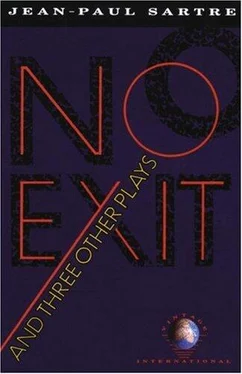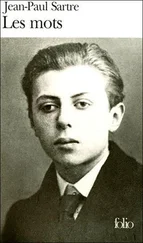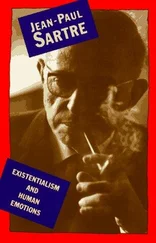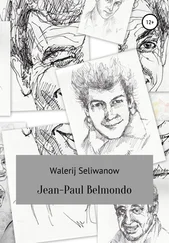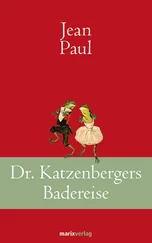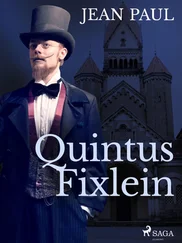Prostrated with grief, poor man. How about you?
INEZ: The gas stove.
ESTELLE: And you, Mr. Garcin?
GARCIA: Twelve bullets through my chest. Sorry! I fear I'm not good company among the dead.
ESTELLE: Please, please don't use that word. It's so-so crude. In terribly bad taste, really. It doesn't mean much, anyhow. Somehow I feel we've never been so much alive as now. If we've absolutely got to mention this-this state of things, I suggest we call ourselves-wait!-absentees. Have you been-been absent for long?
GARCIN: About a month.
ESTELLE: Where do you come from?
GARCIN: From Rio.
ESTELLE: I'm from Paris. Have you anyone left down there?
GARCIN:Yes, my wife. She's waiting at the entrance of the barracks. She comes there every day. But they won't let her in. Now she's trying to peep between the bars. She doesn't yet know I'm- absent, but she suspects it. Now she's going away. She's wearing her black dress. So much the better, she won't need to change. She isn't crying, but she never did cry, anyhow. It's a bright, sunny day and she's like a black shadow creeping down the empty street. Those big tragic eyes of hers- with that martyred look they always had. Oh, how she got on my nerves!
INEZ: Estelle!
ESTELLE: Please, Mr. Garcin!
GARCIN: What is it?
ESTELLE: You're sitting on my sofa.
GARCIN: I beg your pardon.
ESTELLE: You looked so-so far away. Sorry I disturbed you.
GARCIN: I was setting my life in order. You may laugh but you'd do better to follow my example.
INEZ: No need. My life's in perfect order. It tidied itself up nicely of its own accord. So I needn't bother about it now.
GARCIN: Really? You imagine it's so simple as that. Whew! How hot it is here! Do you mind if-
ESTELLE: How dare you! No, please don't. I loathe men in their shirt-sleeves.
GARCIN: All right. Of course, I used to spend my nights in the newspaper office, and it was a regular Black Hole, so we never kept our coats on.
Stiflingly hot it could be. Stifling, that it is. It's night now.
ESTELLE: That's so. Olga's undressing; it must be after midnight. How quickly the time passes, on earth!
INEZ: Yes, after midnight. They've sealed up my room. It's dark, pitch-dark, and empty.
GARCIN: They've strung their coats on the backs of the chairs and rolled up their shirt-sleeves above the elbow. The air stinks of men and cigar-smoke. I used to like living among men in their shirt-sleeves.
ESTELLE: Well, in that case our tastes differ. That's all it proves. What about you? Do you like men in their shirt-sleeves?
INEZ: Oh, I don't care much for men any way.
ESTELLE: Really I can't imagine why they put us three together. It doesn't make sense.
INEZ: What's that you said?
ESTELLE: I'm looking at you two and thinking that we're going to live together…It's so absurd. I expected to meet old friends, or relatives.
INEZ: Yes, a charming old friend- with a hole in the middle of his face.
ESTELLE: Yes, him too. He danced the tango so divinely. Like a professional…But why, why should we of all people be put together?
GARCIN: A pure fluke, I should say. They lodge folks as they can, in the order of their coming. Why are you laughing?
INEZ: Because you amuse me with your "flukes."As if they left anything to chance! But I suppose you've got to reassure yourself somehow.
ESTELLE: I wonder, now. Don't you think we may have met each other at some time in our lives?
INEZ: Never. I shouldn't have forgotten you.
ESTELLE: Or perhaps we have friends in common. I wonder if you know the Dubois-Seymours?
INEZ: Not likely.
ESTELLE: But everyone went to their parties.
INEZ: What's their job?
ESTELLE: Oh, they don't do anything. But they have a lovely house in the country, and hosts of people visit them.
INEZ: I didn't. I was a post-office clerk.
ESTELLE: Ah, yes… Of course, in that case- And you, Mr. Garcin?
GARCIN: We've never met. I always lived in Rio.
ESTELLE: Then you must be right. It's mere chance that has brought us together.
INEZ: Mere chance? Then it's by chance this room is furnished as we see it. It's an accident that the sofa on the right is a livid green, and that one on the left's wine-red. Mere chance? Well, just try to shift the sofas and you'll see the difference quick enough. And that statue on the mantelpiece, do you think it's there by accident? And what about the heat here? How about that? I tell you they've thought it all out. Down to the last detail. Nothing was left to chance. This room was all set for us.
ESTELLE: But really! Everything here's so hideous; all in angles, so uncomfortable. I always loathed angles.
INEZ: And do you think I lived in a Second Empire drawing-room?
ESTELLE: So it was all fixed up beforehand?
INEZ: Yes. And they've put us together deliberately.
ESTELLE: Then it's not mere chance that you precisely are sitting opposite me? But what can be the idea behind it?
INEZ: Ask me another! I only know they're waiting.
ESTELLE: I never could bear the idea of anyone's expecting something from me. It always made me want to do just the opposite.
INEZ: Well, do it. Do it if you can. You don't even know what they expect.
ESTELLE: It's outrageous! So something's coming to me from you two? Something nasty, I suppose. There are some faces that tell me everything at once. Yours don't convey anything.
GARCIN: Look here! Why are we together? You've given us quite enough hints, you may as well come out with it.
INEZ: But I know nothing, absolutely nothing about it. I'm as much in the dark as you are.
GARCIN: We've got to know.
INEZ: If only each of us had the guts to tell-
GARCIN: Tell what?
INEZ: Estelle!
ESTELLE: Yes?
INEZ: What have you done? I mean, why have they sent you here?
ESTELLE: That's just it. I haven't a notion, not the foggiest. In fact, I'm wondering if there hasn't been some ghastly mistake. Don't smile. Just think of the number of people who-who become absentees every day. There must be thousands and thousands, and probably they're sorted out by- by understrappers, you know what I mean. Stupid employees who don't know their job. So they're bound to make mistakes sometimes… Do stop smiling. Why don't you speak? If they made a mistake in my case, they may have done the same about you. And you, too. Anyhow, isn't it better to think we've got here by mistake?
INEZ: Is that all you have to tell me?
ESTELLE: What else should I tell? I've nothing to hide. I lost my parents when I was a kid, and I had my young brother to bring up. We were terribly poor and when an old friend of my people asked me to marry him I said yes. He was very well off, and quite nice. My brother was a very delicate child and needed all sorts of attention, so really that was the right thing for me to do, don't you agree? My husband was old enough to be my father, but for six years we had a happy married life. Then two years ago I met the man I was fated to love. We knew it the moment we set eyes on each other. He asked me to run away with him, and I refused. Then I got pneumonia and it finished me. That's the whole story. No doubt, by certain standards, I did wrong to sacrifice my youth to a man nearly three times my age. Do you think that could be called a sin?
GARCIN: Certainly not. And now, tell me, do you think it's a crime to stand by one's principles?
ESTELLE: Of course not. Surely no one could blame a man for that!
GARCIN: Wait a bit! I ran a pacifist newspaper. Then war broke out. What was I to do? Everyone was watching me, wondering: "Will he dare?"
Well, I dared. I folded my arms and they shot me. Had I done anything wrong?
ESTELLE: Wrong? On the contrary. You were-
INEZ: -a hero! And how about your wife, Mr. Garcin?
Читать дальше
